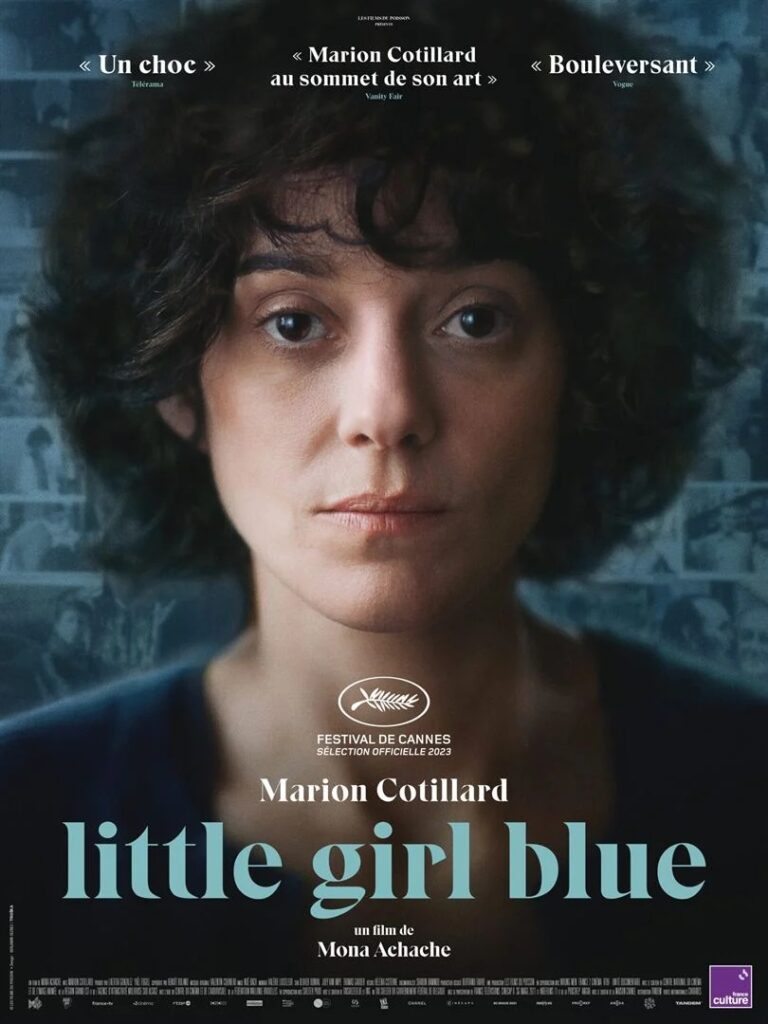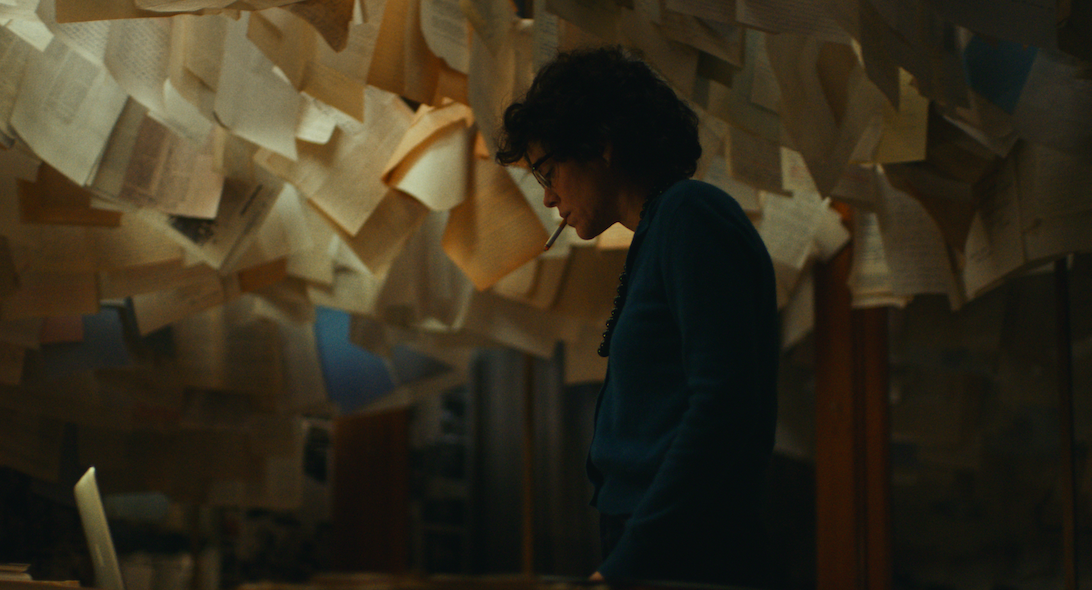
The film directed by Mona Achache is a love letter to her mother and a tribute to her intellectual lineage that includes the likes of Henri Bergson and Marcel Proust, although they are not mentioned here. Little Girl Blue was presented at the 2023 Cannes Film Festival in the Special Screenings section and was well received by critics. The film is a co-production between France and Belgium and is currently part of Rendez-Vous with French Cinema 2024 at Lincoln Center.
The French-Moroccan director, after the passing of her mother Carole, discovered thousands of photos, letters and recordings. This triggered her to investigate into the suicide of her mother through a mind-blowing hybrid docudrama. This path of cinematic therapy begins with the director reconstructing her mother’s life, through the enactment of an actress: Marion Cotillard.

Writer and photographer Carole Achache is played majestically by Cotillard, who won the César Award for Best Actress with this role, becoming the first actress to be nominated for a documentary. Mona Achache acts as herself, as the meta-narrative embraces the genre of theatre and surrealist art.
Little Girl Blue is the exploration of a matriarchal family as it also chronicles the work of the filmmaker’s grandmother, Monique Lange, who was a prolific writer and worked as an editor for Gallimard, interacting with the likes of William Faulkner, Marguerite Duras, Marcel Camus and Jean Genet. The latter became a close but problematic friend, who dramatically overstepped certain boundaries, including abusing Monique’s daughter (Mona’s mother, Carole), at a young age. The film alternates these revelations with some old footage and photos of Saint-Germain clubs in the Fifties, adding further dark undertones. The mood is encapsulated in the the title of the film which takes its name after a Janis Joplin song we hear in the film.

The experimental motion picture travels one decade after the next, scrutinising how the political atmosphere of each epoch influenced the female line of the Achache family. As the director has said of the film: “All my life, I have looked for my mother, in female figures around me. Mine was very flawed. And then she hung herself. I packed her belongings. I came across pictures of her. I see a sublime woman there that I don’t recognise. So, for the first time in my life, I go in search of my own mother. Through it, I will also explore an era, an environment, a movement: the literary Paris of the 60s and 70s. The sexual, homosexual revolution. The liberation of women. The return of morality and conformism in the 80s. The lost illusions of the post-sixty-eighters.”
The storytelling is based on very well documented facts, from which it takes flight into a free expressive form that goes outside the lines of conventional film narration. It’s impressive to see what the director of films such as The Hedgehog and Valiant Hearts has managed to achieve, by thinking outside the box and sharing such a personal story.
Little Girl Blue marks Mona Achache’s pièce de résistance as filmmaking helps her accomplish her dream to bring her mother back to life, to retrace her journey and find out who she really was, exactly as she expressed: “I have an impossible dream: to raise my mother from the dead so she can tell me why she ended it all.” With this film Mona Achache has made the impossible possible.
Photo Credit: Les Films du Poisson
Final Grade: B+

